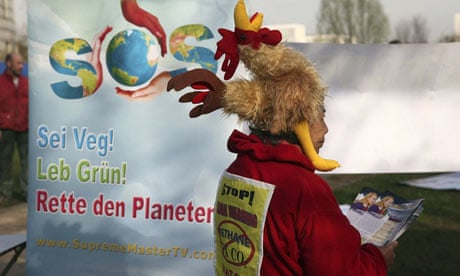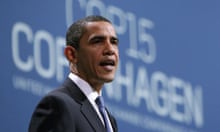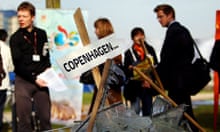Rich countries have threatened to cut vital aid to the developing nations if they do not back the deal agreed at the UN climate summit in Copenhagen, it has emerged.
The pressure on poor countries to support the US, EU and UK-brokered Copenhagen accord came as 190 countries resumed UN climate talks in Bonn in an atmosphere of mutual suspicion.
"The pressure to back the west has been intense," said a senior African diplomat. "It was done at a very high level and nothing was written down. It was made very clear by the EU, UK, France and the US that if they did not back them then they would suffer."
According to other African climate diplomats, threats to cut aid were accompanied by promises of financial support for countries that complied.
"There was definite strong-arming of countries. A lot were left in no doubt that there would be repercussions if they did not associate themselves with the accord," said Saleemul Huq, of the International Institute for Environment and Development, in London.
Yesterday it emerged that the US is to cut climate aid to Bolivia, Ecuador and other countries who have refused to sign up to the accord. But the outgoing UN climate change chief, Yvo de Boer, said: "Bolivia is losing $2.5m in climate funds. That's about what the presidential palace pays for toilet paper a year. Bullying is not an effective instrument."
Earlier this year, Karl Falkenberg, director-general for environment at the European Commission, signalled that countries that did not fully support the accord might not qualify for future funds. "It is not money for free, we are helping developing countries to make more of an effort than they could do on their own."
Although the accord is not legally binding and was not adopted by the UN, more than 112 countries have so far "associated" with it. They include 14 African countries that depend on aid from the EU, UK and France.
It commits rich countries to holding emissions to a rise of 2C, provides for $30bn (£19.5bn) a year to be found in the short term for developing countries to adapt to climate change, and up to $100bn a year in the long term.
Some signatories will be richly rewarded for backing the weak agreement. Ethiopia expects to earn nearly $1bn from climate change funds. However, 90 poor countries have refused to associate with it, mostly arguing it will not reduce emissions enough to prevent catastrophic climate change.







Comments (…)
Sign in or create your Guardian account to join the discussion